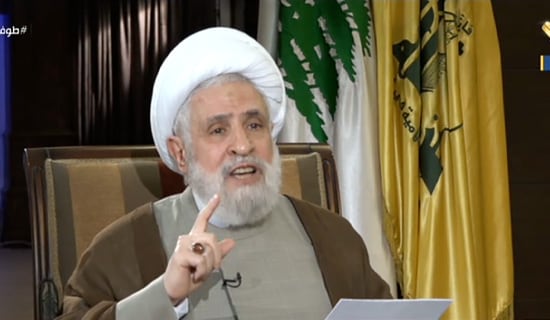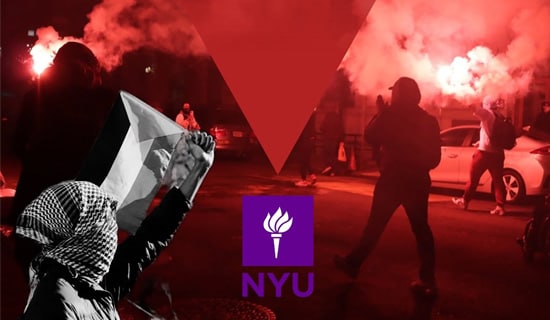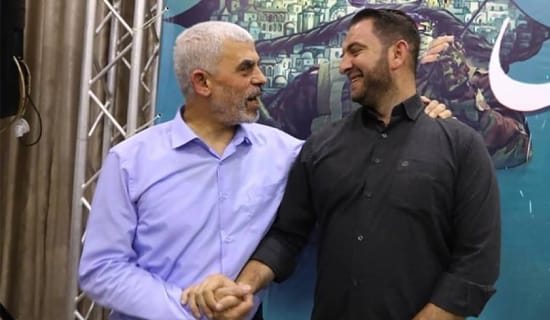The visit by US Under Secretary of State Victoria Nuland, hitherto considered a bete noire in Russia for her active role in the overthrow of the pro-Russian Ukrainian regime of Victor Yanukovich, and her avowed hostility to the Putin regime, went better than expected from Russia's perspective. During her three-day visit to Russia, Nuland met on October 12, 2021 with Deputy Foreign Minister Sergei Ryabkov and Deputy Defense Minister Alexander Fomin. The next day she met with two people considered especially close to Putin foreign policy adviser Yuri Ushakov (74) and Dmitry Kozak (62), the point man for Ukraine. Despite the reputation that preceded her, Nuland's visit appeared to go better than expected, and two heavyweight columnists Mikhail Rostovsky in Moskovskij Komsomolets, and Fyodor Lukyanov in Rossiskaya Gazeta mirrored official satisfaction. Both claimed that the Americans had put the Ukrainian President Vlodomyr Zelensky in his place either because the American were focused on their confrontation with China and didn't want Ukraine to distract them, or because they had become weary of Kiev's antics. Rostovsky even laid out hope that the American's had embraced the Russian position on the Minsk Agreement as a roadmap for a solution to the crisis justifying the headline for his article Nuland's Visit to Moscow Ended in a Political Sensation.
Another take away from the two articles is that both columnists exhibited a preference for the Biden Administration over the Trump Administration, despite the charges of Russian influence on Trump and alleged assistance to his campaign. Rostovsky hoped that the cadaverous relations that marked the Trump era would change for the better, while Lukyanov was satisfied that there was predictability under Biden as opposed to his mercurial predecessor.
Both articles follow below:

Victoria Nuland (Source: Interfax.ru)
Mikhail Rostovsky believes that the Nuland visit shows that the United States is moving closer to the Russian position on Ukraine.[1]
"The US Undersecretary of State, Victoria Nuland, who enjoyed handing out biscuits on the Kiev Maidan square, has ran out of her trademark cookies albeit not forever and everybody. So far, only one person fell victim to the leader of American diplomacy in the post-Soviet space's change of political and culinary predilections - Vladimir Zelensky. As is known, the Ukrainian president has bet on the gradual erosion of the Minsk agreements, aiming at their complete destruction. However, if the Kremlin's official statement is to be believed, during Nuland's visit to Moscow, the Kiev's chief showman (who moonlights as the president) has received the order, 'not so fast!'
"Usually, the official statements of major politicians and diplomats at the end of negotiations are usually quite boring. The true clash of interests that occurred during the talks is smoothed out or lurks under thick silky layers but lacking in meaningful statements. Madam Nuland's "rendezvous" with Dmitry Kozak, the Kremlin's main specialist on the former Soviet Union states and Deputy Kremlin Chief of Staff, was an exception to this rule.
"Kozak's official statement was sensational, 'We had a detailed and constructive dialogue regarding a settlement of the conflict in south-east Ukraine. They confirmed that the Minsk agreements remain the sole ground for a settlement. During the negotiations, the US position voiced in Geneva, that without agreement on the future characteristics of autonomy or (to put it differently) a special status for Donbas within the Ukrainian state, progress in settling the Donbass conflict was unlikely, received confirmation. Given that the parties stances on this issue converge in principle, we agreed to continue mutual consultations.'
"Before drawing final conclusions, it would be nice, of course, to hear Victoria Nuland's detailed account of these talks. But the main point is quite apparent: Vladimir Zelensky's attempt to get off the hook of the Minsk agreements has failed. The Big Brother in Washington didn't approve the Ukrainian president's amateurism. Kiev has been directed to take a step back.
"Now here's the interesting part. By itself, Ukraine's return to the old political trenches of 'yeah, we are ready in principle to implement the Minsk agreements, but we should agree on circumstances,' provides nothing. As the history of endless political maneuvers made first by Poroshenko and then by Zelensky demonstrate, the notorious details (which in fact, of course, are not details at all) can be negotiated indefinitely (or keep up appearance that these issues are being negotiated). What's important is further progress, but [the situation is such] that further progress is not apparent.
SUPPORT OUR WORK

"It is important to get answers to two key questions: what are the Washington's plans regarding Ukraine? And, if the Americans are brewing some big plans, are Kiev's authorities ready to roll over?
"Yes, Ukraine is under a sound system of American external management. However, the following is also true: the idea of revanche has long become Ukraine's main national idea. The existence of a governing American superstructure is perceived as an unavoidable price for the opportunity to carry out such a revanche and as a tool for speeding up the process. The wet dream of Kiev's political elite is to pit Russia against the US, withdraw to safety and return to the field after the fight is over to collect the spoils.
"Simply put, the Ukrainian elite is ready to carry out the American command, forward attack! It's not clear about the opposite order though. Actually, the phrase ‵it's not clear′ merits repetition in describing the Nuland visit to Moscow. The assessments of this visit by Russian officials were all over the place, so that one could think that there were two complete Ms. Nulands touring Moscow.
Victoria Nuland handing out cookies during the Maidan demonstrations in 2014 (Source: Echo.msk.ru)
"At first, one of Nuland's colleagues, Deputy Foreign Minister Sergey Ryabkov gave a negative recap. However, subsequently the tone of the comments veered in the opposite direction. Now even Putin speaks of ‵a sustainable working relationship with Biden′ and stresses that Nuland negotiated in a positive spirit while in Moscow.
"Comrades, should we be more consistent? – Not at all. This lack of total clarity is characteristic of true diplomacy (especially to the distant observer). The diplomacy isn't purely logical, with huge leaps forward or back. The is a certain stirring in the almost frozen US-Russia relations. which were almost in a stalemate. This is major progress compared to the cadaverous Trump era. Will it be enough to budge the deadlocked Donbass conflict? We'll see. Sometimes this answer is the best that political analysis has to offer at one concrete moment or the other.″
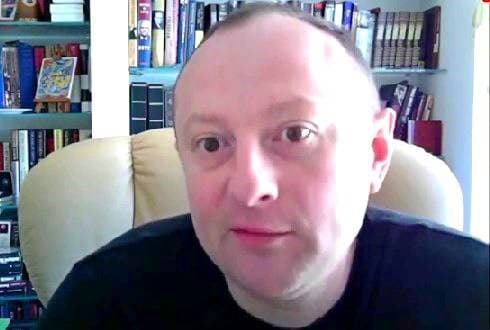
Mikhail Rostovsky (Source: Politobzor.net)
Fyodor Lukyanov believes that the US focus on China means that the US seeks to avoid a blowup in Ukraine.[2]
"Victoria Nuland, the US Undersecretary of State for Political Affairs in charge of Europe and Eurasia policy, came to Moscow. A procedure unprecedented in diplomatic history, which graphically reflects the norms of today's global politics, preceded the diplomat's visit. Ms. Nuland, famous for her uncompromisingly critical position on Russia and her active involvement in the Ukrainian events of 2014 was on the travel ban list in Russia. The ban was lifted, when as a mirror arrangement, we let Nuland in and the Americans did the same for a Russian diplomat, who couldn't enter the US for analogous reasons. It's great to get along and all that the two countries get along, but there is something extraordinary to this. A special political deal was needed in order to do routine diplomatic work, which is a part of professional duties of a diplomat. Norms and rules established over the centuries were insufficient. We live in truly peculiar times; it was somewhat easier during the Cold War.
"Victoria Nuland has become an almost legendary person in our country. Due to a video of her handing out sweets on the Kyiv Maidan square, she has epitomized Washington's Ukrainian policy. Undoubtedly, Ms. Nuland, as the wife of one of the most prominent neoconservative ideologues, Bob Kagan, has rather defined views, and wholeheartedly advocates promoting democracy and opposes Russian imperialism. But first and foremost, she is an experienced and disciplined official who follows the general policy line. For now, so it seems, this policy line is businesslike and pragmatic. Thus, her visit is linked to very specific objectives, set by the White House.
"The perseverance with which the undersecretary strove to visit Moscow is, probably, attributes to the Biden administration's attempt to find out what are the real prospects for an escalation of Russian-Ukrainian relations. The White House has absolutely no need for an exacerbation of the relations. All the steps made in the recent months by the US administration were in accordance with clearly defined priorities.
"The number one priority, which transcends in importance all the others, is containment of China. China-US relations are steadily worsening, at a minimum the conflict's intensity is growing. The focus of attention is again the Taiwan issue, which is the most explosive and unfortunately amongst all China-US contradictions could lead to war. A speedy resolution is unforeseen and the opposite is more likely. Accordingly, the entire [US] strategy is presently calculated by this. The Biden's administration has shown that it is capable of following a consistent policy, where it needs to.
"This is not to say that the Russian issue has been completely sidetracked. The Pentagon has repeatedly mentioned the Moscow's military power as a source of severe concern. This fact explains the [US] interest in the strategic consultations in Geneva, which had started after the Biden-Putin meeting. However, regarding many issues, Russia is more and more perceived in the context of the China- US confrontation. This includes factors that could dissuade Washington from the main direction of confrontation.
"As far as one can tell, Biden and his administration strive to ensure that the Russia- Ukraine issue, especially around Donbass region, remains stable, without escalations. I could even assume that Washington is ready to prompt Kiev [to make concessions to Moscow], all the more so because Vladimir Zelensky's political dynamics are rather surprising for Americans [as well as for the Russians].
"Political processes in Kiev have picked up, and the president has begun pursuing a policy of consolidating his own power and inhibiting many centers of influence, foe which the Ukrainian politics been famous. He has no stable foothold. Thus, Zelensky is trying to create an elaborate illusionary system, involving the West (to frighten the Ukrainian oligarchs) and Russia (to acquire the Western support). This plan is quite unstable and risky, because (among other things) of the risk to recklessly escalate the situation in Donbass (this conclusion is based purely on internal logic of such a policy). This tactic causes Washington's concern, not to mention that the fatigue from the Ukraine's actions has long been accumulating. And who better than Victoria Nuland knows the underbelly of Ukrainian politics and the skills of the country's elite.
"During the 10 months in the White House the Biden administration has shown that it can follow a consistent policy where it needs to (a big advantage compared to its predecessor) and ideological differences can be ignored, if necessary (unlike all post-Cold War administrations from Clinton to Obama), or put aside, to say more precisely. Thus clarifying the issues of multilateral mutual deterrence on Ukraine is probably the point of the current visit. Thus, the visit wasn't about some "deals," long-term arrangements, which experts for whatever reason immediately start talking about as soon as any high-level contact occurs.
"First, contemporary politics doesn't provide for any long-term commitments. Second, there are not even slightly realistic plans for the settlement (the Minsk agreements are a framework, that no one seems to seriously believe in anymore). Third, according to Nuland, Russia and the US's common interest is only in the need for predictability, nothing more. This not bad either, compared to what we have become accustomed to in relations with the US. ″
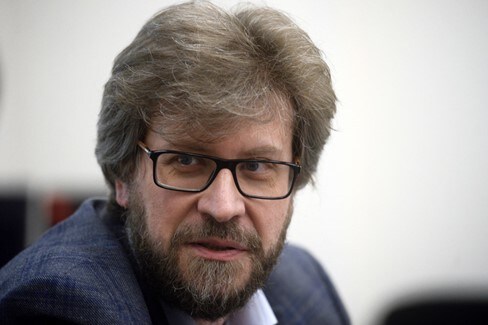
Fyodor Lukyanov (Rg.ru)


